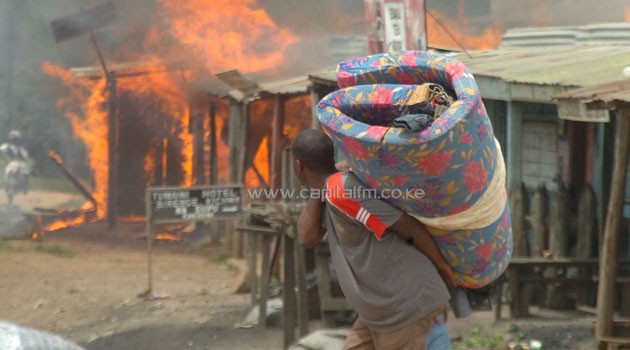
A multi-agency taskforce was set up in February 2012 to assess more than 5,000 such cases. The DPP says that around 1,000 of them have since gone to trial, with some 500 resulting in convictions/XINHUA FILE
The demands follow revelation by Kenya’s Director of Public Prosecutions (DPP) Keriako Tobiko earlier this month that more than 4,000 criminal cases – including alleged acts of rape, murder and arson – will not be prosecuted.
More than 1,100 people were killed and 650,000 forced from their homes when violence erupted along ethnic lines following a presidential poll in December 2007. Three people, including the country’s President, Uhuru Kenyatta, and his deputy, William Ruto, are facing trial at the International Criminal Court (ICC) in The Hague.
While the ICC investigated senior-level perpetrators, thousands of crimes attributed to mid-and lower-level suspects were reported to Kenyan police.
A multi-agency taskforce was set up in February 2012 to assess more than 5,000 such cases. The DPP says that around 1,000 of them have since gone to trial, with some 500 resulting in convictions.
Tobiko now maintains that there is not enough evidence to bring the rest of the cases to trial.
This casts a shadow over plans for a special section of the High Court known as the International Crimes Division (ICD) of the High Court.
The ICD though set up with a key mandate to deal with transnational crimes, also was expected to deal with the 2008 Post Election Violence. A domestic court, the ICD will be able to try ‘International crimes’, meaning war crimes, crimes against humanity and genocide, under the International Crimes Act of 2008. (See Setback for Kenya’s Special Court http://iwpr.net/report-news/setback-kenyas-special-court.)
Tobiko made the announcement during a meeting in the town of Naivasha where he was discussing the mechanics of setting up the ICD with members of the judiciary.
“The sad and painful truth… is that at present there are no cases arising out of the 2007-08 post-election violence that can be prosecuted before the ICD,” Tobiko told the meeting.
Njonjo Mue, a human rights lawyer and specialist on post-conflict justice, criticised this decision. He told IWPR that the move reflected a lack of political will rather than a lack of evidence, and urged the authorities to re-examine the cases.
“The DPP has the authority under the Constitution to direct the Inspector General of Police to investigate cases that have not been properly investigated,” Mue said. “He should tell us if he has done so and what is the outcome of that process. That’s where we should start.”
A confidential letter signed by Lillian Kiamba on January 17, 2014, on behalf the Criminal Investigations Department (CID) seen by Capital FM News, police say none of the PEV cases can be prosecuted due to lack of evidence.
Kiamba explained of frustrations faced by police investigators in collecting evidence from complainants and identification of perpetrators.









































